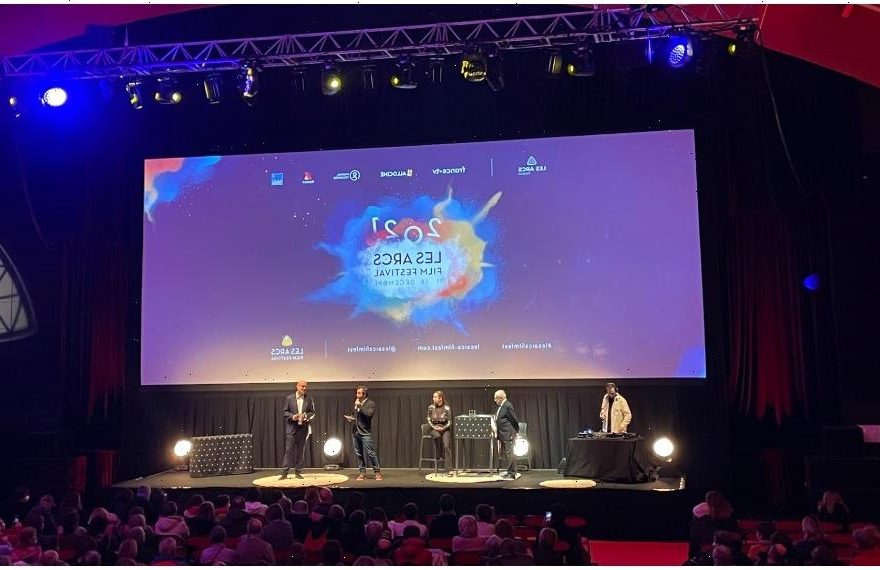In spite of a new wave of COVID-19, a snow storm and train cancelations, Les Arcs European Film Festival kicked off its 13th edition on Dec. 10 with a festive opening night ceremony highlighted was the presence of Swedish star Noomi Rapace who introduced her film “Lamb” on stage.
Vladimar Jóhannsson’s feature debut, “Lamb,” world premiered in the Un Certain Regard section of the Cannes Film Festival. It is now representing Iceland in the best international feature Oscar race. Rapace said it was a “very personal film, close to (her) heart” and added that she was pleased to have it played at Les Arcs, surrounded by a “beautiful snowy landscape” which “filled (her) with joy and inner strength.”
Pierre-Emmanuel Fleurantin, the festival’s CEO, who is also a producer on Filippo Meneghetti’s award-winning “Two of Us” and the Cannes-premiering documentary “The Velvet Queen,” said putting together the festival amid the pandemic had felt like an “uphill battle.” “It was surely the most complicated edition to organize but we were committed to make it happen after canceling last year 20 days before the start,” said Fleurantin. The festival set up a full lab where guests can get quick PCR or salivary tests and asked everyone to present a negative test dating from within 24 hours, as well as a proof of vaccination upon arrival.
“All those difficulties have made this edition even more important and we hope it will bring you some light and hope,” said Fleurantin. “The pandemic has revealed the vulnerability of societies and has changed the way we view the world, has made us more aware of the impact of our actions. That’s why I believe this period of transition is positive,” he added.
The festival’s industry sidebar, the Coproduction Village and Work-in-Progress, also beat the odds by gathering more than 500 participants from all around Europe, said Jeremy Zelnik, who co-founded Les Arcs Film Festival and heads professional events whose alumni include “Lamb,” Lukas Dhont’s “Girl” and Nora Fingscheidt’s “System Crasher.”
“We’ve been having a very large presence in international festivals, with seven projects at Cannes, three at Venice and three at Locarno within the last year,” said Zelnik.
Frederic Boyer, the artistic director of both Tribeca and Les Arcs film festivals, curates the work-in-progress which this year includes 14 movies in post-production, spanning 18 countries across Europe. He said out of 570 industry guests which had registered for the professional event, only 70 had canceled due to the pandemic. Unlike many similar initiatives, the work-in-progress in Les Arcs selects only projects that have never been shown before. “We’re interested in projects that are in a very early stage of editing, have never been shown before and have a strong festival potential,” said Boyer, who works hand-in-hand with filmmakers for one month prior to the showcase to help them edit their eight-minute clips and prepare their pitch.
Highlights include “Opponent,” a drama by Swedish up-and-comer Milad Alami (“The Charmer”) and produced by Sweden’s Tangy and Norway’s Ape&Bjørn; “Silver Haze,” helmed by Sacha Polak and produced by Dutch banner Viking Film and the U.K.’s Emu Films; and “Summer to Come,” directed by Hungarian filmmaker György Mór Kárpáti and produced by Proton Cinema and Café Film.
“Festivals play an increasingly vital role for arthouse films at a time when theatrical distribution has become scarce in many territories, and in many cases movies can’t exist without a festival slot, a prize and reviews,” said Boyer.
Les Arcs’s jury is presided by “The Artist” director Michel Hazanavicius and includes Tania de Montaigne, Laeticia Dosch, Eric Judor and Sidse Babett Knudsen.
Source: Read Full Article
